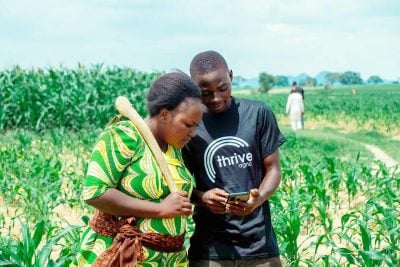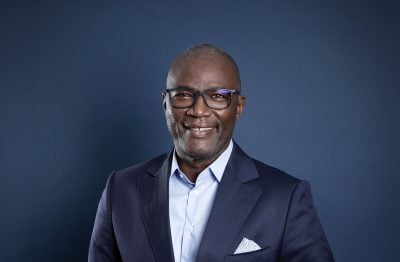The West African CFA franc is being reformed and renamed. Is this a positive step towards a single currency for West Africa or an attempt to hijack it? Will McBain and Charles Dietz report
West African states are divided over the future of currency union in the region after the announcement last December by the presidents of Côte d’Ivoire and France of far-reaching reforms to the West African CFA franc, which will be renamed the eco.
France has agreed to reduce its historical supervision of the former colonial currency, which is used in the eight member states of the West African Economic and Monetary Union (WAEMU). Seven of these countries – Benin, Burkina Faso, Guinea Bissau, Côte d’Ivoire, Mali, Niger, Senegal and Togo – were French colonies and have continued to use the currency since independence. They were joined in 1997 by Guinea Bissau, a former Portuguese colony.
The move marks an historic loosening of ties with France and has been presented as a major step towards the long-delayed single currency for West Africa promoted by the Economic Community of West African States (Ecowas), which includes Cape Verde, Gambia, Ghana, Guinea, Liberia, Nigeria and Sierra Leone in addition to the WAEMU countries.
However, it has been criticised in some quarters for not going far enough in removing French tutelage. At the same time, most non-WAEMU members of Ecowas have expressed concerns about its implications for the single currency. In June 2019, the leaders of Ecowas had decided to adopt the eco as the name for this currency and to introduce it in 2020.
Far-reaching reforms
Speaking in his capacity as the current head of WAEMU, President Alassane Ouattara of Côte d’Ivoire presented the three major reforms to the West African CFA franc at a joint press conference with President Emmanuel Macron of France in Abidjan. In addition to the renaming of the currency in 2020, there will no longer be a French representative on the board of the Central Bank of West African States (BCEAO), which acts as a central bank for all the WAEMU countries, and they will no longer have to keep half their exchange reserves in Paris.
The two latter points responded to popular demands in WAEMU countries. While France’s role as the guarantor of the CFA franc has assured macroeconomic stability, its involvement in the management of the currency and holding of the reserves has provoked resentment from those who have seen this as preserving French political and corporate hegemony in its former colonies.
But like its predecessor, the eco will be pegged to the euro, and France will continue in its role as the guarantor of its convertibility, meaning that it still exercises a degree of control.
At the same press conference, President Macron praised the accords his finance minister was about to sign with WAEMU as a “new partnership” that ended arrangements seen, especially by young Africans, as “post-colonial”. He stressed that France had agreed to continue its role as guarantor of the currency at the express wish of WAEMU leaders, who wanted to keep the euro peg in the interests of macroeconomic stability. He also emphasised that the new arrangements were aimed at advancing the single currency and contributing to regional integration in order to build greater prosperity in West Africa.
The changes do not affect the six countries that use the Central African CFA franc, which will continue under the previous arrangements with France, at least for the time being.
For and against the eco
The peg to the euro and the French guarantee of convertibility should continue to ensure stability. The WAEMU states have generally controlled inflation since the CFA franc was devalued in 1994, while non-CFA states Nigeria and Ghana have experienced periodic high rates of inflation. The WAEMU states have also enjoyed lower interest rates than other countries in the region due to the peg.
But this means the WAEMU countries will still have no control over the exchange rate of their currency, preventing them from devaluing it to make exports cheaper.
The euro peg “remains a suboptimal solution for the region”, says Brandon Locke, strategic adviser at the Brussels International Centre, a think-tank focused on the Middle East and North Africa. “It severely limits the scope of flexibility in monetary policy, risks persistent overvaluation, and disassociates regional circumstances from affecting the currency.”
Supporters of the peg say that a stable currency has encouraged foreign, particularly French, investment into the zone, but opponents highlight UNCTAD’s World Investment Report of 2019, which shows that Ghana received a greater amount of foreign direct investment (FDI) between 2013 and 2017 than all of the WAEMU countries combined. IMF data shows that countries operating with a fixed exchange rate in the region have experienced lower levels of economic growth than economies operating with a floating currency.
But a break with the euro peg would guarantee, at least for a short time, higher rates of inflation that would hurt the poor, says Charlie Robertson, global chief economist at Renaissance Capital. Such a move “would weaken currencies, while incurring higher borrowing costs,” he argues.
Perhaps the thorniest issue is the control France continues to exercise as guarantor of the currency’s convertibility. France is losing valuable ground in Africa, and its “two tools to prevent that decline” are the currency and military intervention, claims Senegalese development economist Ndongo Samba Sylla.
France does not want to get rid of the CFA franc, he tells African Business, but to “hijack” the Ecowas project by “occupying” the space first and extending the CFA franc zone to the smaller Ecowas countries, leaving out Ghana and Nigeria which are too big to be in a monetary zone under the tutelage of France.
Reaction in Anglophone countries
Outside the CFA zone, President Akufo-Addo of Ghana initially greeted the news positively, saying “We, in Ghana, are determined to do whatever we can to enable us to join the member states of [WAEMU], soon, in the use of the eco,” although he called on WAEMU to end the euro peg as soon as possible.
However, in mid-January, the finance ministers and heads of central banks of the West African Monetary Zone (WAMZ) Convergence Council – which groups the six English-speaking members of Ecowas and Guinea – held an extraordinary meeting to discuss the issue. They concluded that WAEMU’s “unilateral” use of the name for its currency was “inconsistent” with Ecowas’ plans to adopt a currency of the same name, and that “all Ecowas member countries” should adhere to the roadmap for the adoption of the single currency agreed last June.
The roadmap contains strict convergence criteria for joining the single currency, including a deficit of less than 3% of GDP, inflation at 10% or under and debts worth less than 70% of GDP. This has proved a stubborn block to the introduction of the currency and is unlikely to be met by most countries in 2020. As Sylla points out, Togo is the only country that currently meets all of the targets.
The long delay in establishing the single currency, which was initially planned to launch in 2003, has also been due to a lack of regional economic leadership and a lukewarm Nigerian response to the plans. Many Nigerians value their independent currency, even amid the ups and downs of inflation.
Furthermore, Nigeria represents over 70% of Ecowas’ wealth, with an oil-dependent economy highly sensitive to external shocks. Critics say that this imbalance would exacerbate already significant structural differences between the 15 states inside the proposed economic union.
With a meeting of the heads of government of WAMZ to discuss their reactions to the WAEMU likely to take place soon, the future of the Ecowas project hangs in the balance. As Sylla puts it, “this is a battle, and we’ll see what happens”.
Want to continue reading? Subscribe today.
You've read all your free articles for this month! Subscribe now to enjoy full access to our content.
Digital Monthly
£8.00 / month
Receive full unlimited access to our articles, opinions, podcasts and more.
Digital Yearly
£70.00 / year
Our best value offer - save £26 and gain access to all of our digital content for an entire year!
 Sign in with Google
Sign in with Google 


